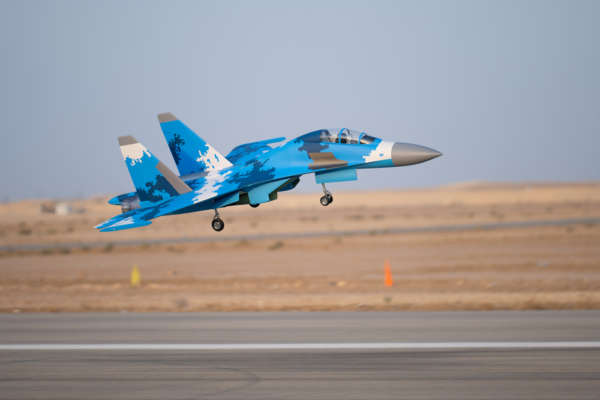
Saudi Arabia has steadily been developing its domestic aerospace industry capabilities as part of a greater effort to diversify its economy away from fossil fuels. This transition presents many opportunities for companies, both domestic and international. Major players in the aerospace industry are building factories in the kingdom, while supplier networks and domestic aerospace enterprises are growing. With the country’s Public Investment Fund (PIF) allocating billions to the sector, there’s never been a better time to enter this region.
Saudi Arabia’s Aerospace Manufacturing Sector: Emerging Trends and Opportunities
Aerospace Is a Key Component of the Saudi Vision 2030 Plan
The aerospace industry is one of the core industries named in Vision 2030 as it overlaps and supports other aspects of the country’s development plan. For instance, another goal is to boost tourism and bring in 70 million visitors annually. This is an extremely ambitious goal, considering that pre-pandemic levels of tourism barely eclipsed 20 million international guests each year. That additional capacity calls for more airports, more aircraft, and more underlying infrastructure to maintain and operate it all.
However, the aerospace industry also coincides with another major goal: improve national defense production capacity. The kingdom is highly reliant on military imports from partners like the United States. Being able to produce more military equipment nationally gives the kingdom additional security and leverage should geopolitical relations change in the future. When military and civilian priorities align, there’s bound to be ample opportunity for business in the aerospace sector. We’ve seen massive investments in both subdivisions of the industry.
Major Investments in Aerospace Defense
Saudi Arabia has increased its focus on domestic aerospace manufacturing in recent years. The war in Ukraine has proven that aerial warfare has evolved. Drones are a cheap, useful tool for reconnaissance, strategic strikes, and ground support. The kingdom aims to produce 50% of their defense equipment within their national borders: a lofty aim considering that today that number is below 20%. The money is there, though; the Vision 2030 goal should be reached in time through aggressive investment.
In fact, billions of dollars in contracts are backlogged due to lack of production capacity. The kingdom now requires OEMs from abroad to outline how they will expand domestic capacity in order to secure contracts. This means that major defense companies like Northrup, Lockheed, and Raytheon will need to establish more operations inside the country. Opportunities will trickle down for suppliers, maintenance providers, and large-scale local manufacturers alike. The massive “World Defense Show” held in Riyadh is just one example.
Growing Civilian Aerospace
The civilian aviation market in the kingdom is rapidly expanding. Through a planned $150bn in investments towards infrastructure and manufacturing capacity, the country hopes to triple its aerospace factory count by 2035. Plans include new airports and airport redevelopments to accommodate the increased volume of passengers. The country has inked deals with both Boeing and Airbus to produce vehicles and establish more offices in the kingdom. Smaller aviation brands like Embraer have also been in discussions.
If the kingdom’s aerospace goals were just short-term endeavors meant to boost capacity, it’d still be worth investing your money in the sector. However, the plan goes much farther. The kingdom wants to position itself as an aviation leader. There are plans for long-term growth in aerospace exports, including the production of modern composite materials for the aerospace industry. Bringing more knowledge and know-how from abroad will build a sustainable long-term industry that could rival established nations like France.
Efficient Manufacturing Is a Top Priority
Recall how the main overarching goal of Vision 2030 is to reduce dependency on oil exports as the primary source of income for the kingdom. Oil will still play a major role in the country’s growth going forward, but the nation is prioritizing clean energy production domestically and efficiency in operations to minimize waste. By reducing domestic consumption and expanding renewables, the country hopes to reach a net-zero carbon emissions level by 2060.
A project of that scale starts now. New businesses will be expected to comply with stricter regulations and higher efficiency standards. Companies in the sector will need to invest in digital industry tools to better track their material and energy consumption. By analyzing this data with advanced cloud computing, companies can find deficiencies and fix them, boosting both their bottom line and making them more attractive to the kingdom. Contracts from the abundant PIF will follow.
Industry 4.0 Is Becoming the Standard
Companies need to be versatile in order to succeed in the new aerospace environment the KSA is building. As the kingdom hopes to court companies from across the world and satisfy both defense and civilian needs, agile companies that can provide a wider variety of services and products will be the most successful. Furthermore, more efficient businesses will have a better chance of placing the winning bid on lucrative government contracts.
Therefore, companies with the most advanced capabilities will have the greatest advantage. Industry 4.0, powered by big data and AI, is a must. These new industry paradigms allow businesses to automate more of their operations and leverage data throughout their processes to optimize and cut costs without sacrificing the high quality that the aerospace market calls for. Aerospace manufacturing businesses need to implement this technology as soon as possible, since it takes time to reach maturity.
Position Your Business for Success in the KSA
The potential for growth in the KSA cannot be understated. With strong investment coming from both internal and foreign sources, companies have a golden opportunity. To seize it, work with digital transformation experts that know the region and understand how to take your company’s technology to new heights.
Contact SAAB RDS to schedule a meeting with one of our experts.
